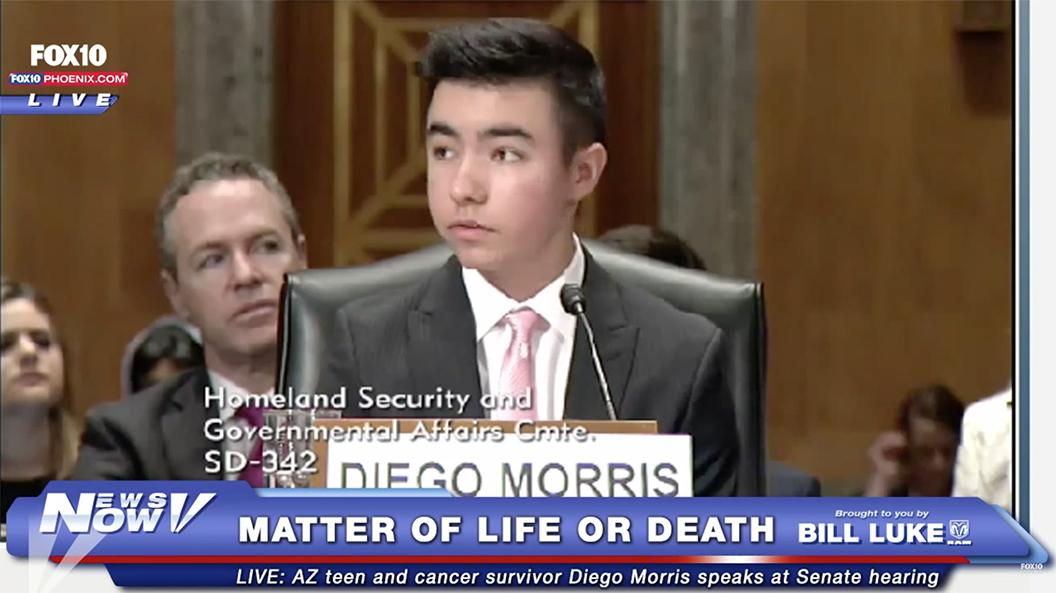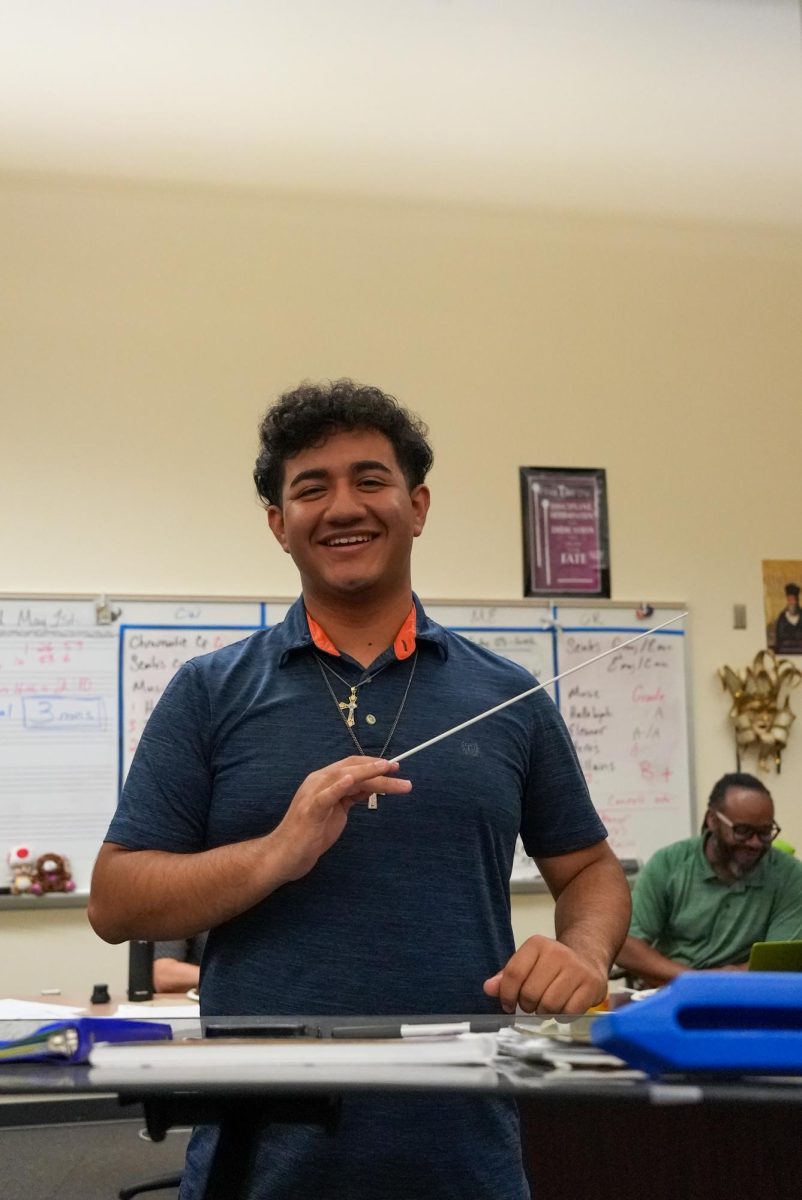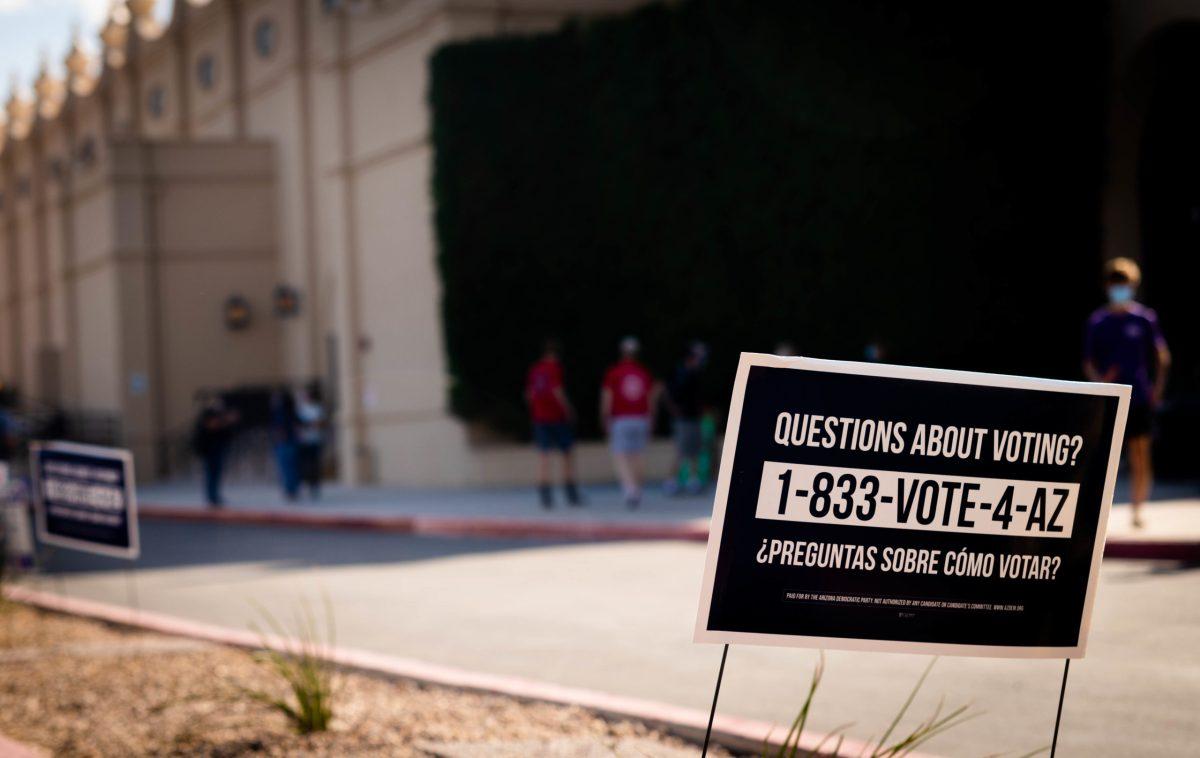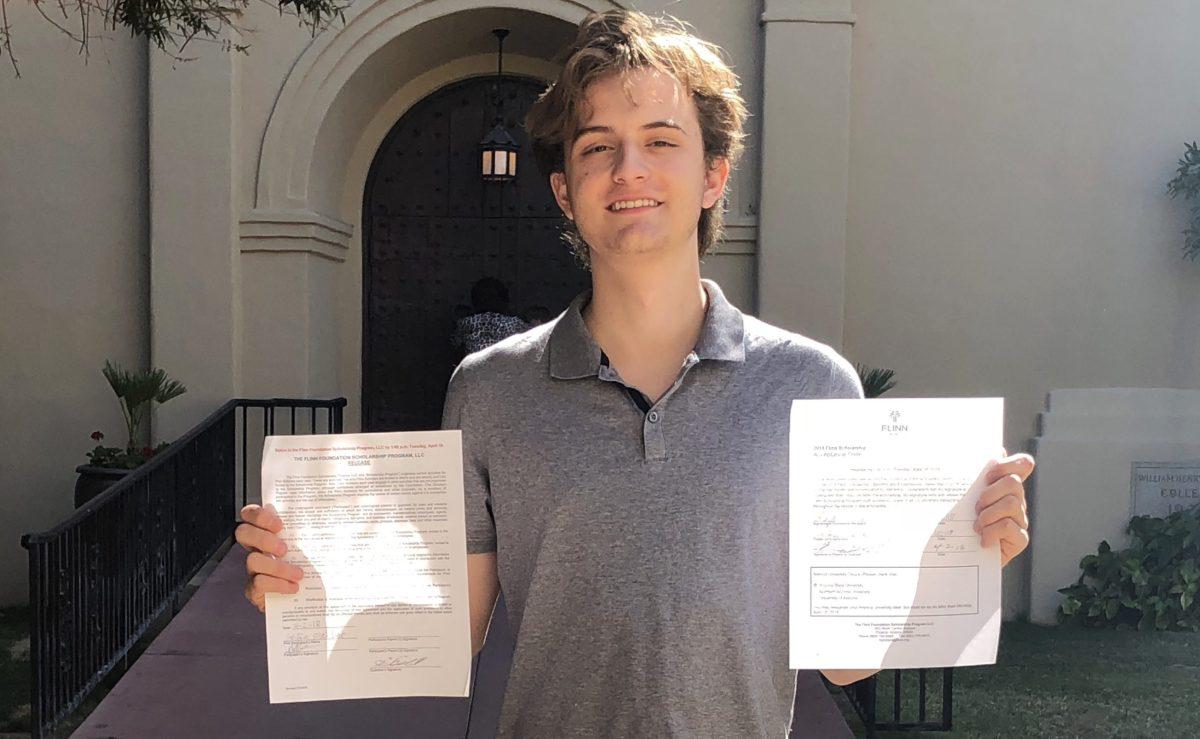Photo Courtesy of Fox 10 – Screenshot of the video of Diego Morris’ speech on the Fox 10 Youtube channel.
By Reece M. Krantz ’16
THE ROUNDUP
Diego Morris ’19 had his life turned upside down in 2012, when he was diagnosed with a rare form of bone cancer.
Morris thought he was just sore from sports and other activities, but it was worse than thought.
“When I was 11 I was diagnosed with Osteosarcoma, a rare form of bone cancer. I was diagnosed and started basic chemotherapy in Phoenix,” Morris said. “Then I had a surgery that replaced the tumor with a titanium prosthesis.”
He said that when his parents became aware of an experimental drug not approved in the U.S that could save his life, they took drastic measures.
“We ended up moving to England to get this drug and receive treatment for about a year,” Morris said. “The drug is called MTP (mifermatide).”
A majority of his time was spent in a hospital, receiving 26 rounds of chemotherapy and MTP, he said.
“It was rough,” he said. “I have a strong support system, my family was there every step of the way so I tried to stay positive.”
The United States is typically seen as leader in medicine and medical technology and, with over 146,977 patents in the past two decades, this is mostly true.
However, medical law and standards set by the Food and Drug Administration are notoriously slow and legislation that allows certain medication or trials to take place can take years to be approved, harming Americans that need it.
Morris said that he and his family wanted to help others in their situation so they don’t have to go through what he did.
“My family and I decided that when we came back we would do whatever it takes to make it so other families didn’t have to go through what we went through.”
One of these methods was to work with several political activist groups, one being the Goldwater Institute, a conservative, libertarian public policy think-tank.
“The Goldwater institute approached me and my family about being an advocate for the Right to Try law and I jumped at that opportunity,” Morris said.
This opportunity lead him to speak to Congress in March about this law to help pass it.
“I was one of five witnesses, and we were each given five minutes to give a statement on our beliefs of Right to Try after that all the senators were allowed to ask questions,” Morris said.
“The senators seemed to support it and think it was morally right.”
So far, the Right to Try law has been approved in 23 states in the past two years, making it a relatively quick process.
























